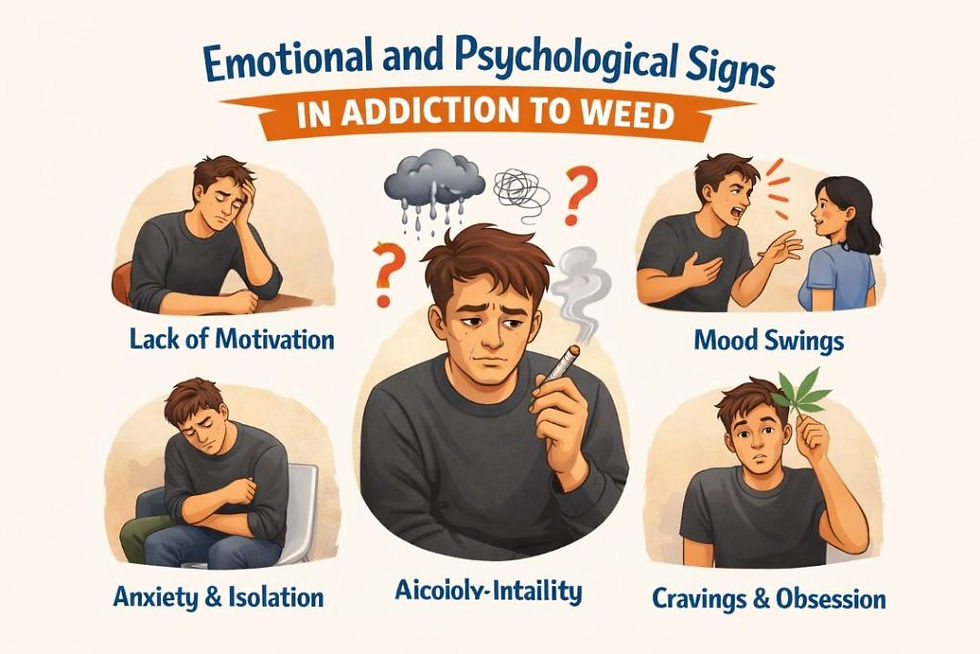Dependent Personality Disorder (DPD): Understanding & Treatment
- Felicia Parris

- Jul 22, 2025
- 2 min read
Understanding and Treating Dependent Personality Disorder (DPD)
Dependent Personality Disorder (DPD) is a mental health condition marked by an overwhelming need to be taken care of, difficulty making decisions independently, and an intense fear of abandonment. For those living with DPD, daily life can feel uncertain, anxious, and emotionally exhausting. But with the right support, healing is possible.
At DeLand Treatment Solutions, we provide compassionate, evidence-based care designed to empower individuals struggling with DPD. Our goal is to help clients build confidence, set healthy boundaries, and learn how to live more independently while still feeling connected and supported.

What is Dependent Personality Disorder?
DPD is one of several personality disorders defined by persistent patterns of thinking, feeling, and behaving that negatively impact a person’s life. Common symptoms of DPD include:
Excessive reliance on others for emotional or physical needs
Difficulty making everyday decisions without reassurance
Avoiding personal responsibility
Fear of being alone or abandoned
Tolerating mistreatment to avoid losing a relationship
Lack of confidence in one’s own abilities
Left untreated, DPD can lead to toxic relationships, poor self-esteem, anxiety, depression, and even substance use as a way to cope with emotional pain.
How We Treat Dependent Personality Disorder
Our Dependent Personality Disorder Treatment Program at Deland Treatment Solutions is built on understanding, structure, and empowerment. We take a personalized, trauma-informed approach that includes:
1. Cognitive Behavioral Therapy (CBT)
CBT helps clients recognize and change negative thought patterns. It teaches decision-making skills and encourages self-efficacy, helping clients learn to trust themselves.
2. Dialectical Behavior Therapy (DBT)
DBT improves emotional regulation and interpersonal effectiveness. For those with DPD, this therapy strengthens independence and reduces anxiety around separation or rejection.
3. Individual Therapy
One-on-one therapy sessions allow for a safe space to explore fears, develop confidence, and set personal goals for growth and autonomy.
4. Group Therapy
Group settings provide healthy social interaction, shared experiences, and supportive feedback, all essential for developing stronger relationship boundaries.
5. Family Therapy
DPD often affects family dynamics. Family therapy helps educate loved ones, repair relationships, and build a support system that encourages independence, not dependency.
6. Life Skills Training
We provide practical coaching in areas like budgeting, time management, communication, and decision-making to foster real-world self-reliance.
Why Choose Deland Treatment Solutions?
Healing starts with trust and continues with empowerment. Our licensed clinicians, supportive staff, and customized treatment plans are here to help you move from fear and dependence to confidence and freedom. Every step of the way, you'll find understanding and encouragement without judgment.
Take the First Step Toward Independence Today
If you or a loved one is struggling with Dependent Personality Disorder, you are not alone, and there is help available. At Deland Treatment Solutions, we’re here to guide you on the path toward recovery, self-trust, and emotional strength.
👉Visit DeLand Treatment Solutions. Or 📞For availability and personalized support, please contact our admissions team at (386) 866-8689 today. Let us help you rediscover balance, purpose, and emotional freedom one mindful step at a time. You have the strength to grow. Let us help you believe it.



Comments